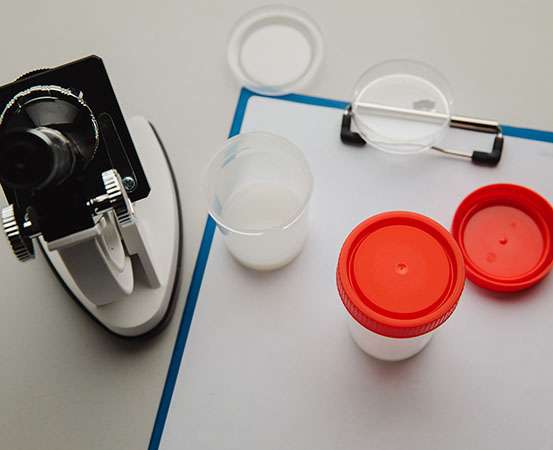
Your urine should not be red in color unless you have consumed beetroot the day before or you’re on your period. A condition where blood is observed in urine is called hematuria. Experts say that blood in urine could result from urinary tract infections (UTIs), kidney related diseases or even cancer in rare cases.
What is hematuria?
“Hematuria, to put it simply, is blood in urine. Usually, urine color ranges from white to pale yellow. In case of hematuria, the color can include shades of pink, red and darkish brown. Hematuria should not be ignored as it could indicate an underlying health issue,” says Dr T Praveen Kumar, a urologist and senior consultant, Fortis Hospital, Chennai.
A 62-year-old woman from Chennai noticed that she had blood in urine and reported to a private hospital. The doctors found that she had a huge tumor in the bladder which had started spreading to the surrounding nodes. The doctors had to treat this condition by removing the bladder and replacing it with a new one (neo-bladder). It was discovered that the woman, who was neither an alcoholic nor a smoker, developed bladder cancer because of the hair dye that she used for 30 years, explains Dr Kumar.
He adds, “Blood in the urine can be accompanied by pain in cases of infection or stones. However, in case of cancer, hematuria is painless.”

Types of hematuria
Microscopic hematuria: “Here, blood is not visible and is usually detected during general checkups and urine analysis,” says Dr Kumar
Gross hematuria: “In this type of hematuria, the urine is red in color and is visible to the naked eye which is mostly associated with blood clots and prompts immediate medical condition,” says Dr Srikanth V, urologist, and founder Urocare super speciality clinic, Bengaluru.
What causes blood clots in your urine?
Blood clots in urine can be caused due to kidney stones, urinary tract infections (UTIs), bladder or kidney infections, and cancers that need immediate medical attention says Dr Srikanth V.
A 55-year-old man, with a history of painless recurring blood clots in his urine, was diagnosed with a 2 cm bladder tumor in a private hospital in Bengaluru. He had urinary tract infection and was a chronic smoker. “The individual with this condition is now stabilized with multiple cycles of BCG injections. He needs regular monitoring due to a high possibility of cancer recurrence,” explains Dr Srikanth V
Are blood clots in urine an emergency?
Yes, Hematuria with blood clots is a urological emergency. It can cause excessive bleeding, leading to a drop in hemoglobin, blood pressure, and an increase in pulse rate. “Some individuals may need blood transfusions and intensive care unit (ICU) management. In severe cases, individuals can experience clot retention, a condition requiring immediate medical attention,” Dr Srikanth added.
Blood clot retention is another condition where clots get accumulated in the bladder which requires immediate admission and catheterization to wash the clot out, he stated further.
Find the root cause of blood clots in urine
Experts say that individuals need to visit a urologist to find the root cause for blood clots in urine.
“The risk of blood clots can be minimized, and recurrence can be prevented through appropriate management and treatment of these conditions as directed by a health care provider,” says Dr Suri Raju, urologist and medical director from Regal Multi-specialty hospital, Bengaluru.
Diagnosis and treatment for hematuria
Dr Zahid Raza, an urologist from Bengaluru, says that the underlying condition causing hematuria needs to be diagnosed. Treating the underlying issue will resolve hematuria.
The checklist for diagnosing the underlying condition includes:
- Complete health history of the individual.
- Age group, specifically checked to determine the type of problem.
- Smoking and alcohol history.
- Family history.
- Examination to check any obstructions in the urinary tract.
- Urine test and urine culture to identify the infection.
- Ultrasound of the abdomen to check for lesions or pathological causes.
- If none of the above tests indicate any condition, a computed tomography (CT) scan is performed for a closer inspection in case something is missed in the ultrasound.
How are blood clots in urine treated?
Individuals with severe bleeding requires hospitalization, blood transfusions. In the event of blood retention, cystoscopy may be necessary. Medications prescribed based on condition’s severity by healthcare providers.
Preventive tips
- Drinking adequate amounts of water (about two to three liters. In places with higher temperatures, three and a half to four liters need to be consumed).
- Fluids like lime, sweet lime or orange juices need to be consumed as they neutralise urine to prevent infections.
- Dried cranberries act as natural protector of the urinary system. They prevent stone formation, promote kidney health and decrease the rate of infections.
- Avoiding smoking.
Takeaways
- Blood in the urine (hematuria) should not be ignored as it could indicate an underlying health issue.
- Blood clots in urine can be caused by kidney stones, urinary tract infections (UTIs), bladder or kidney infections, and certain cancers.
- Hematuria with blood clots urological emergency. It can cause excessive bleeding, leading to a drop in hemoglobin, blood pressure, and an increase in pulse rate.
- Undergoing a few diagnostic tests to find the root cause will help individuals to minimize the risk of blood clots.
- Treatment may vary as per the severity of the blood seen in the urine.
- Avoiding smoking, staying hydrated and consulting a doctor can help to overcome the condition.

















